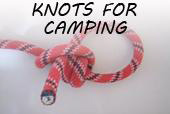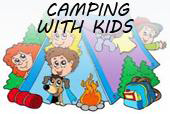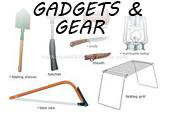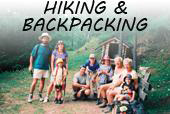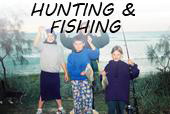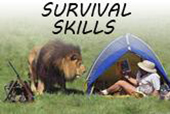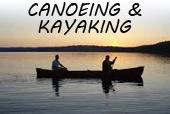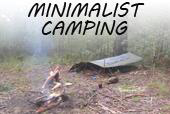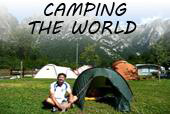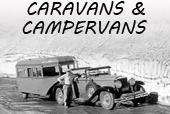I have camped everywhere from the empty Black Rock Desert to the beautiful Quetico wilderness of Canada, always with the environment in mind as I planned and executed my trips. A dedicated camper can do more than just minimize negative environmental impacts: they can, amazingly enough, leave the natural environments they encounter in even better shape than they found them. There are some easy rules of thumb to follow if you want to be an environmentally responsible camper:
1) LEAVE NO TRACE: Pack out what you pack in (and more). Any object you can bring back out with you you should – from something as small as an unburnt matchstick to your food packaging. This means: bring garbage bags, and plenty of them (you don’t want to end up re-opening the same waste bag day after day). When I was a young camper I was taught to always leave a campsite cleaner than we found it, by searching for and picking up trash that wasn’t even my own. At times we came back with a bag of trash as big as our own full of other people’s junk!
2) CAREFUL WITH WASTE: Use a restroom or dig deep, and clean your kitchenware far from sources of fresh water. In order to avoid disturbing the ecosystem or attracting certain kinds of animals you will want to dig a hole or pit for human waste, and then cover it. Also, use highly biodegradable toilet paper and bury it with your waste. If a restroom is available (because you’re in a more developed camping area) use that instead of going the quick route of using the forest – human waste adds up over time and can have dramatic effects on an ecosystem. In places like the Black Rock Desert where even liquid human waste can change the PH of the sand, you will want to pack out that waste in plastic bottles if at all possible.
3) LOW-IMPACT CAMPING: Keep your clearing and interference to a minimum. many campgrounds, including in the remote wilderness, have pre-set areas for camping and cooking (such as in the Boundary Waters Canoe Area in Minnesota). Use these, don’t make your own! In Canada (such as in the Quetico) they also have areas, though these can be harder to find and may not have a fire pit. Try to clear as little of the brush to make your campsite and cooking fire as possible – while creating enough space not to risk a fire spreading. Stick to trails that have been made by the local or regional environmental authorities whenever possible to minimize your impact.


